52 start with E start with E
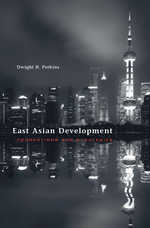
In the early 1960s, fewer than five percent of Japanese owned automobiles, China’s per capita income was among the lowest in Asia, and living standards in South Korea’s rural areas were on par with some of the world’s poorest countries. Today, these are three of the most powerful economies on earth. Dwight Perkins grapples with both the contemporary and historical causes and consequences of the turnaround, drawing on firsthand experience in the region to explain how Asian countries sustained such rapid economic growth in the second half of the twentieth century.
East Asian Development offers a comprehensive view of the region, from Japan and the “Asian Tigers” (Hong Kong, Singapore, Taiwan, South Korea) to Indonesia, Vietnam, Thailand, Malaysia, and China—a behemoth larger than all the other economies combined. While the overall picture of Asian growth is positive, no single economic policy has been effective regionwide. Interventionist policies that worked well in some countries failed elsewhere. Perkins analyzes income distribution, to uncover why initially egalitarian societies have ended up in very different places, with Japan, for example, maintaining a modest gap between rich and poor while China has become one of Asia’s most unequal economies.
Today, the once-dynamic Japanese and Korean economies are sluggish, and even China shows signs of losing steam. Perkins investigates whether this is a regional phenomenon or typical of all economies at this stage of development. His inquiry reminds us that the uncharted waters of China’s vast economy make predictions of its future performance speculative at best.

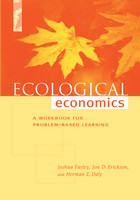
Ecological economics addresses one of the fundamental flaws in conventional economics--its failure to consider biophysical and social reality in its analyses and equations. Ecological Economics: Principles and Applications is an introductory-level textbook that offers a pedagogically complete examination of this dynamic new field.
As a workbook accompanying the text, this volume breaks new ground in applying the principles of ecological economics in a problem- or service-based learning setting. Both the textbook and this workbook are situated within a new interdisciplinary framework that embraces the linkages among economic growth, environmental degradation, and social inequity in an effort to guide policy in a way that respects fundamental human values. The workbook takes the approach a step further in placing ecological economic analysis within a systems perspective, in order to help students identify leverage points by which they can help to affect change. The workbook helps students to develop a practical, operational understanding of the principles and concepts explored in the text through real-world activities, and describes numerous case studies in which students have successfully completed projects.
Ecological Economics: A Workbook for Problem-Based Learning represents an important new resource for undergraduate and graduate environmental studies courses focusing on economics, environmental policy, and environmental problem-solving.


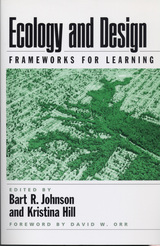
Professionals, faculty, and students are aware of the pressing need to integrate ecological principles into environmental design and planning education, but few materials exist to facilitate that development.
Ecology and Design addresses that shortcoming by articulating priorities and approaches for incorporating ecological principles in the teaching of landscape design and planning. The book explains why landscape architecture and design and planning faculty should include ecology as a standard part of their courses and curricula, provides insights on how that can be done, and offers models from successful programs. The book:
- examines the need for change in the education and practice of landscape architecture and in the physical planning and design professions as a whole
- asks what designers and physical planners need to know about ecology and what applied ecologists can learn from design and planning
- develops conceptual frameworks needed to realize an ecologically based approach to design and planning
- offers recommendations for the integration of ecology within a landscape architecture curriculum, as an example for other design fields such as civil engineering and architecture
- considers the implications for professional practice
- explores innovative approaches to collaboration among designers and ecologists
In addition to the editors, contributors include Carolyn Adams, Jack Ahern, Richard T. T. Forman, Michael Hough, James Karr, Joan Iverson Nassauer, David Orr, Kathy Poole, H. Ronald Pulliam, Anne Whiston Spirn, Sandra Steingraber, Carl Steinitz, Ken Tamminga, and William Wenk. Ecology and Design represents an important guidepost and source of ideas for faculty, students, and professionals in landscape architecture, urban design, planning and architecture, landscape ecology, conservation biology and restoration ecology, civil and environmental engineering, and related fields.

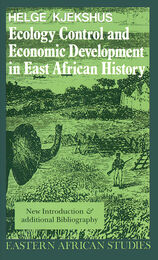
The book puts people at the centre of events. It thus serves as a modification to nationalist history with its emphasis on leaders. It presents environmental factors that had been underestimated; for instance, it points to the critical importance of the rinderpest outbreak.
Helge Kjekshus provides evidence to suggest that the nineteenth century was a period of relative prosperity with well-developed trade. He questions the view that warfare was pervasive and that the slave trade led to depopulation. He points to a balance between man and the environment.
This book is reissued at the same time as the first publication of Custodians of the Land: Ecology and Culture in the History of Tanzania edited by Gregory Maddox, James I. Giblin and Isaria N. Kimambo. The footnotes in that book point to the importance of the work of Helge Kjekshus.
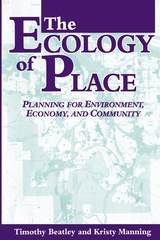
Current patterns of land use and development are at once socially, economically, and environmentally destructive. Sprawling low-density development literally devours natural landscapes while breeding a pervasive sense of social isolation and exacerbating a vast array of economic problems. As more and more counties begin to look more and more the same, hope for a different future may seem to be fading. But alternatives do exist.
The Ecology of Place, Timothy Beatley and Kristy Manning describe a world in which land is consumed sparingly, cities and towns are vibrant and green, local economies thrive, and citizens work together to create places of eduring value. They present a holistic and compelling approach to repairing and enhancing communities, introducing a vision of "sustainable places" that extends beyond traditional architecture and urban design to consider not just the physical layout of a development but the broad set of ways in which communities are organized and operate. Chapters examine:
- the history and context of current land use problems, along with the concept of "sustainable places"
- the ecology of place and ecological policies and actions
- local and regional economic development
- links between land-use and community planning and civic involvement
- specific recommendations to help move toward sustainability
The authors address a variety of policy and development issues that affect a community -- from its economic base to its transit options to the ways in which its streets and public spaces are managed -- and examine the wide range of programs, policies, and creative ideas that can be used to turn the vision of sustainable places into reality.
The Ecology of Place is a timely resource for planners, economic development specialists, students, and citizen activists working toward establishing healthier and more sustainable patterns of growth and development.

Economic Analysis and Infrastructure Investment explores the links between infrastructure investment and economic outcomes, analyzing key economic issues in the funding and management of infrastructure projects. It includes new research on the short-run stimulus effects of infrastructure spending, develops new estimates of the stock of US infrastructure capital, and explores incentive aspects of public-private partnerships with particular attention to their allocation of risk. The volume provides a reference for researchers seeking to study infrastructure issues and for policymakers tasked with determining the appropriate level and allocation of infrastructure spending.
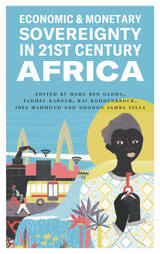
Over forty years after the formal end of colonialism, suffocating ties to Western financial systems continue to prevent African countries from achieving any meaningful monetary sovereignty.
Economic and Monetary Sovereignty in 21st Century Africa traces the recent history of African monetary and financial dependencies, looking at the ways African nations are resisting colonial legacies. Using a comparative, multi-disciplinary approach, this book uncovers what went wrong after the Pan-African approaches that defined the early stages of independence, and how most African economies fell into the firm grip of the IMF, World Bank, and the EU’s strict neoliberal policies.
This collection is the first to offer a wide-ranging, comparative and historical look at how African societies have attempted to increase their policy influence and move beyond neoliberal orthodoxy and US-dollar dependency. Economic and Monetary Sovereignty in 21st Century Africa is essential reading for anyone interested in the African quest for self-determination in a turbulent world of recurring economic and financial crises.

These fourteen essays covering a wide range of subjects of great current interest reflect the continuous evolution of the author’s thought from 1951 to 1961. Range and flexibility characterize Alexander Gerschenkron’s dynamic approach to Europe’s industrial history. Connecting evolution in individual countries with their degree of economic backwardness, he presents the industrialization of the continent as a “case of unity in diversity,” thus offering a cogent alternative, supported by case studies, to the traditional view of industrialization as monotonous repetition of the same process from country to country. Brought together for the first time, these essays were originally published in specialized periodicals in the United States and abroad.
Explaining and systematizing the elements of creative innovation in industrial history, Gerschenkron opens new paths of research and poses a number of pertinent questions for the problem of economic development in backward countries. His versatile analysis not only includes construction of ingenious industrial output indices and fruitful historical hypotheses on the index-number problem, but also original insights gleaned from a study of Soviet novels and a brilliant critique of Doctor Zhivago.

For decades, Central America has faced market dependency, natural disasters, and political systems characterized by protectionist policies and low participation--situations that have had a tremendous impact on its economic development.
This two-volume set is a comprehensive assessment of Central America's position in the world economy, and it serves as a handbook for the important economic reforms Central America must undertake to become a viable competitor in the international economy.

For decades, Central America has faced market dependency, natural disasters, and political systems characterized by protectionist policies and low participation--situations that have had a tremendous impact on its economic development.
This two-volume set is a comprehensive assessment of Central America's position in the world economy, and it serves as a handbook for the important economic reforms Central America must undertake to become a viable competitor in the international economy.
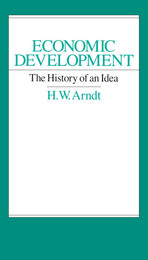

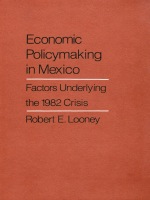
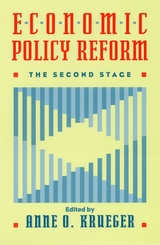
Economic Policy Reform: The Second Stage provides an incisive overview of the context of these crucial second-stage reforms with a thorough examination of the issues confronting the policymakers involved. Edited by Anne O. Krueger, it features studies from distinguished experts in various fields of economics. Each chapter of this book addresses a key issue in economic policy, examines the progress of reforms in the markets considered, and then explores what research might further aid leaders as they embark on fundamental changes.
Both a handbook for economists and practitioners and a theoretical exploration of the most significant challenges currently facing the economic world, this new book will be indispensable to anyone involved in the global economic scene.
Contributors:
Vittorio Corbo
Cimon Cowan
Sebastian Edwards
Stephan Haggard
Michael Kremer
Steven Matusz
Frederic S. Mishkin
Jonathan Morduch
Roger G. Noll
Miguel A. Savastano
T. Paul Shultz
Mary M. Shirley
T.N. Srinivasan
Joseph E. Stiglitz
Vito Tanzi
David Tarr
Aaron Tornell
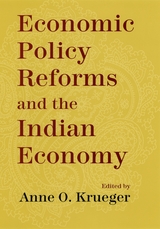
Economic Policy Reforms and the Indian Economy evaluates the effects of those changes and identifies areas of the Indian economy still in urgent need of reform. After an overview of Indian economic policies and development since independence, papers focus on the country's fiscal situation, the environment for private economic activity, education, the reservation of certain activities for small-scale industry, and determinants of differentials in rates of growth across the different Indian states. Contributors include respected academic specialists on India and policy reform, high-level Indian administrators, and present and past policymakers.

These clearly written and insightful essays address the roots of China's crisis. The authors focus on institutional changes necessary for a spontaneous market order and point to the close relation between economic reform and political-constitutional reform. Topics include the speed and degree of the transition, whether ownership reform must precede price reform, how inflation can be avoided, steps to depoliticize economic life, how to create an environment conducive to foreign trade and investment, and how to institute basic constitutional change and open China to the outside world.
The revolutionary changes now shaking the foundations of socialism and central planning in the Soviet Union and Eastern and Central Europe are sure to have an impact on China's future. Despite their seriousness, the events of Tiananmen Square may constitute only a temporary detour on the road toward a private market order. The essays in this volume help lay a rational framework for understanding China's present problems and for discussing the prospects for future reform.
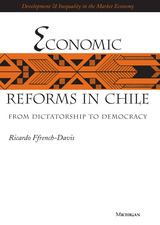
Written in accessible and readable prose, Economic Reforms in Chile begins with an overview of the Chilean economy during the last fifty years. This historical time frame is divided into three periods of economic reform. The first period covers the Pinochet regime, during which the more orthodox neoliberalism was implemented. The second period includes the Pinochet dictatorship, during which economic policy shifted toward pragmatism, particularly in the areas of trade and finance; it also includes the crisis of 1982 and its effects. The third period begins in 1990 with the return to democratic elections and the significant reforms to prior reforms. This section also examines the search for growth-with-equity, success in investment and growth performance, macroeconomic sustainability, and the reduction of poverty. Ffrench-Davis addresses several "paradoxes," or results that defy the expectations of policymakers, in order to analyze the significance of comprehensive macroeconomic equilibrium and its implications for sustainable stability, growth, and equity.
Economic Reforms in Chile will be of interest to economists, political scientists, and policymakers involved with the economies of emerging and developing countries.
Ricardo Ffrench-Davis is Principal Regional Advisor, ECLAC, Santiago, and Professor of Economics, University of Chile.
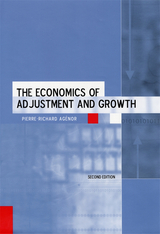
This book provides a systematic and coherent framework for understanding the interactions between the micro and macro dimensions of economic adjustment policies; that is, it explores short-run macroeconomic management and structural adjustment policies aimed at promoting economic growth. It emphasizes the importance of structural microeconomic characteristics in the transmission of policy shocks and the response of the economy to adjustment policies. It has particular relevance to the economics of developing countries.
The book is directed to economists interested in an overview of the economics of reform; economists in international organizations, such as the UN, the IMF, and the World Bank, dealing with development; and economists in developing countries. It is also a text for advanced undergraduate students pursuing a degree in economic policy and management and students in political science and public policy.

The Economics of Aging presents results from an ongoing National Bureau of Economic Research project. Contributors consider the housing mobility and living arrangements of the elderly, their labor force participation and retirement, the economics of their health care, and their financial status. The goal of the research is to further our understanding both of the factors that determine the well-being of the elderly and of the consequences that follow from an increasingly older population with longer individual life spans. Each paper is accompanied by critical commentary.

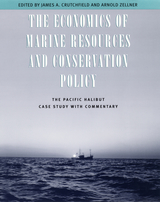
This book presents a complete reprint of Crutchfield and Zellner's pioneering study, together with a new introduction by the authors and four new papers by other scholars. These new studies cover the history of the Pacific halibut industry as well as the general and specific contributions of the original work—such as price-oriented conservation policy—to the fields of resource economics and management. The resulting volume integrates theory and practice in a clear, well-contextualized case study that will be important not just for environmental and resource economists, but also for leaders of industries dependent on any natural resource.
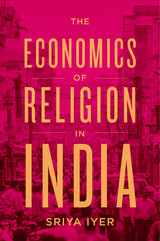
Religion has not been a popular target for economic analysis. Yet the tools of economics can offer deep insights into how religious groups compete, deliver social services, and reach out to potential converts—how, in daily life, religions nurture and deploy market power. Sriya Iyer puts these tools to use in an expansive, creative study of India, one of the most religiously diverse countries in the world.
Iyer explores how growth, inequality, education, technology, and social trends both affect and are affected by religious groups. Her exceptionally rich data—drawn from ten years of research, including a survey of almost 600 religious organizations in seven states—reveal the many ways religions interact with social welfare and political conflict. After India’s economy was liberalized in 1991, she shows, religious organizations substantially increased their provision of services, compensating for the retreat of the state. Iyer’s data also indicate that religious violence is more common where economic growth is higher, apparently because growth increases inequality, which sectarian politicians might exploit to encourage hostility toward other religions. As inequality leads to social polarization, religious doctrines become more extreme. But there are hopeful patterns in Iyer’s data, too. Religious organizations, on balance, play a positive role in India’s socioeconomic development, and women’s participation in religious life is on the rise.
The Economics of Religion in India has much to teach us about India and other pluralistic societies the world over, and about the power of economics to illuminate some of societies’ deepest beliefs and dynamics.
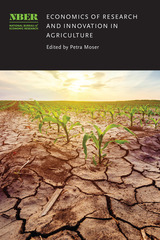
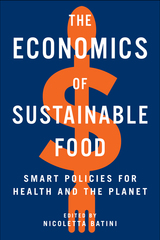
The Economics of Sustainable Food details the true cost of food for people and the planet. It illustrates how to transform our broken system, alleviating its severe financial and human burden. The key is smart macroeconomic policy that moves us toward methods that protect the environment like regenerative land and sea farming, low-impact urban farming, and alternative protein farming, and toward healthy diets. The book’s multidisciplinary team of authors lay out detailed fiscal and trade policies, as well as structural reforms, to achieve those goals.
Chapters discuss strategies to make food production sustainable, nutritious, and fair, ranging from taxes and spending to education, labor market, health care, and pension reforms, alongside regulation in cases where market incentives are unlikely to work or to work fast enough. The authors carefully consider the different needs of more and less advanced economies, balancing economic development and sustainability goals. Case studies showcase successful strategies from around the world, such as taxing foods with a high carbon footprint, financing ecosystems mapping and conservation to meet scientific targets for healthy biomes permanency, subsidizing sustainable land and sea farming, reforming health systems to move away from sick care to preventive, nutrition-based care, and providing schools with matching funds to purchase local organic produce.
In the years ahead, few issues will be more important for individual prosperity and the global economy than the way we produce our food and what food we eat. This roadmap for reform is an invaluable resource to help global policymakers improve countless lives.


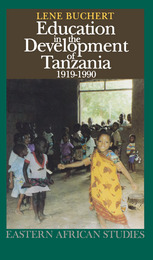
Deals with the realities of education in a debt-ridden African country trying to cope with the pressures of externally imposed educational budgets.

“Blood,” Goethe observed in Faust, “is a very special juice.” How special it is and how complex as well is revealed in Douglas Surgenor’s Edwin J. Cohn and the Development of Protein Chemistry.
As Surgenor aptly shows, what began as a modest program in basic research at the Harvard Medical School in 1920 with the establishment of a small laboratory for the study of the physical chemistry of proteins, suddenly and quite unexpectedly took on immensely practical proportions twenty years later when the onset of World War II made requisite new sophisticated blood techniques and blood substitutes for the treatment of military casualties.
The knowledge and expertise gained by Edwin Cohn and his laboratory associates in the study of proteins, amino acids, and peptides in blood after 1920 put them in a unique position to carry out the search for new blood products. Edwin J. Cohn and the Development of Protein Chemistry discloses how the wartime emergency called into play Cohn’s talents as a leader who drew together chemists, clinicians, pathologists, immunologists, and others in the attainment of a complex goal. The revolution Cohn started has still not run its course.

What makes civil society organizations effective performers? What are key practices for businesses creating social value activities as a part of their overall operations? Business leaders have long analyzed corporate practices; this book represents an innovative analysis of how one does good in an effective and strategic manner. This book aims to enable social and business leaders to gain a greater understanding of how to achieve high performance in terms of social value creation.
Social Enterprise Knowledge Network is a research partnership encompassing eleven leading management schools—nine in Latin America, one in Spain, and Harvard Business School—with a demonstrated capacity to produce high-quality, original, field-based research in Latin America.
Based on the results of a two-year research process on how social and business organizations in Iberoamerica achieve superior social performance, Effective Management of Social Enterprises presents the most comprehensive and in-depth analysis of such practices ever undertaken in this region. This practitioner-oriented book also enriches the literature on organizational performance, social enterprise, and corporate social responsibility, and on Iberoamerica more generally.



Available for the first time in English, Martin Lamm's work on the evolution of Emanuel Swedenborg's (1688-1772) philosphical system has stood as the standard humanist interpretation of Swedenborg's writings. First published in Swedish in 1915, the book has influenced generations of European scholars. His detailed investigation of the philosophical and religious background of Swedenborgian thought is an illuminating inquiry into the mystery of how Swedenborg was transformed from a scientist into a seer.
Lamm demonstrates that there is a logical and consisten line of thought developed from Swedenborg's earliest childhood experiences to his most mature theological statements. Backed by scholarly evidence, Lamm shows that Swedenborg's scientifically based worldview was not changed by his religious revelations -- rather, his visions completed and corroborated the picture.
Martin Lamm's analysis of the genesis of Swedenborgian philosophy is a masterful and lively portrait of one of history's most remarkable thinkers.

This history of administrative thought and practice in colonial Kenya looks at the ways in which white people tried to engineer social change.
It asks four questions:
- Why was Kenya’s welfare operation so idiosyncratic and spartan compared with that of other British colonies?
- Why did a transformation from social welfare to community development produce further neglect of the very poor?
- Why was there no equivalent to the French tradition of community medicine?
- If there was a transformatory element of colonial rule that sought to address poverty, where and why did it fall down?
The answers offer revealing insight into the dynamics of rule in the late colonial period in Kenya.


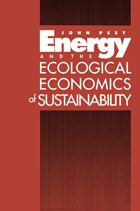
Energy and the Ecological Economics of Sustainability examines the roots of the present environmental crisis in the neoclassical economics upon which modern industrial society is based. The author explains that only when we view ourselves in the larger context of the global ecosystem and accept the physical limits to what is possible can sustainability be achieved.

Not since Charles and Mary Beard's The Rise of American Civilization has a narrative been written for the general reader and student alike that so superbly explicates the origins of American capitalism. Arguing that the central fact explaining the success of the American experiment is the development of the economy, the distinguished economic historian Stuart Bruchey shows the reciprocal relationship between economic growth and values, law, and social and political change, as well as between economic development and the more traditional variables of capital, labor, and resources.
Enterprising, risk-taking men and women in all walks of life are at the center of the remarkable story that is the American dream and reality. The farm family moving to an unfamiliar environment and trying new technology; the business executive or worker with a new idea for improving a machine; the jurist venturing down a different legal path to sharpen incentives to invest; lawmakers of all kinds risking tenure or office by giving priority to measures designed to entice capital and labor to their jurisdictions—these entrepreneurs provided the leaven that gradually raised the living standards of the average person to heights unknown anywhere in the past.
Twenty years in the writing, Enterprise summarizes the scholarly contributions of historians and social scientists. It reaches deep into the European past—to fourteenth-century Italy—to retrace the origins of American capitalism. The author tells the story of individual achievement and vertical social mobility and their triumph over obstacles, a never-ending theme of American enterprise. Whether Americans maintain those heights today or will suffer a decline as the price of 1980s “now-nowism”—as Richard Darman characterizes this decade of wanting everything, at once, and paying nothing—remains to be seen.

Itamar Dubinsky’s extensive ethnographic research offers an innovative theoretical approach by assessing three institutions—Mandela Soccer Academy, Kumasi Sports Academy, and Unistar Soccer Academy—through an Africapitalist prism. He demonstrates that these business endeavors, when viewed from the perspective of local interests, realize many of the educational, financial, and community building ambitions of the region. This pioneering examination of locally owned academies in Ghana reflects Dubinsky’s aim of illuminating the entrepreneurs and programs whose success passes to participating youth and their families, while also exposing the contradictions of for-profit development initiatives that purport to reap collective social benefits.

Malaysia interests development practitioners for many reasons, not least because of its remarkably rich natural environment. Environment and Development in a Resource-Rich Economy provides an invaluable analysis of major natural resource and environmental policy issues in the country during the 1970s and 1980s--a period of profound socioeconomic changes, rapid depletion of natural resources, and the emergence of serious air and water pollution problems.
What is path-breaking about this book is its emphasis on economics as a source of concepts and methods for analyzing natural resource and environmental issues and policy responses. The authors' access to unpublished data and key decision makers makes this account of extensive, field-based research an essential reference for policy makers and researchers concerned about environmental and natural resource management--both in Malaysia and throughout the globe. The book should be of particular interest for students who hope to understand more thoroughly the economic underpinnings of natural resource and environmental management policy.

Agrawal brings environment and development studies, new institutional economics, and Foucauldian theories of power and subjectivity to bear on his ethnographical and historical research. He visited nearly forty villages in Kumaon, where he assessed the state of village forests, interviewed hundreds of Kumaonis, and examined local records. Drawing on his extensive fieldwork and archival research, he shows how decentralization strategies change relations between states and localities, community decision makers and common residents, and individuals and the environment. In exploring these changes and their significance, Agrawal establishes that theories of environmental politics are enriched by attention to the interconnections between power, knowledge, institutions, and subjectivities.

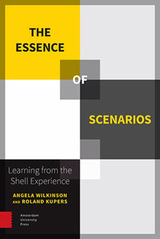

A fundamental reinterpretation of Derrida's project and the works for which he is best known, Kates's study fashions a new manner of working with the French thinker that respects the radical singularity of his thought as well as the often different aims of those he reads. Such a view is in fact "essential" if Derrida studies are to remain a vital field of scholarly inquiry, and if the humanities, more generally, are to have access to a replenishing source of living theoretical concerns.


Taking cues from the Japanese concept of ethical or stakeholder capitalism, this book demonstrates how the business activities of firms in Thailand and Indonesia are guided by their perceptions of morality in society and their concerns about the environment. The authors explore the likelihood that foreign influences contributed to the development of such management philosophies, for example through the expansion of Japanese subsidiary firms in the 1980s or the spread of foreign articulations of the concept of corporate social responsibility (CSR) since the 2000s. Companies in both countries may exercise a degree of pragmatism in how they develop these activities. As the authors reveal, the perceptions of morality in business that have shaped many entrepreneurs and companies in Thailand and Indonesia are their responses to the dynamic political, social, and economic factors that have formed the business environments of both countries.
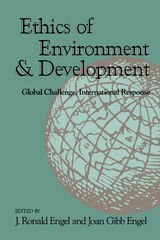
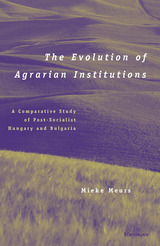
With the collapse of the state socialist regimes in East-Central Europe, it was widely expected that collectivized agriculture would quickly be remade in the glowing image of China--a patchwork of small, privately run farms yielding rapid increases in output and incomes. However, the European experience has been quite different; while socialist collective farms have disappeared, collective forms of organization have persisted, and private farming has been slow to emerge. Meurs argues that an understanding of the causes of the slow emergence of private farming is essential to effective policy intervention in agriculture. This book contributes to such an understanding through analyzing variations in farm organization and rural market development and comparing agricultural restructuring in Hungary and Bulgaria.
The Evolution of Agrarian Institutions is unique in its combination of original survey data, published data on land use, and published historical data. It also tests two institutionalist explanations for the pace and direction of change in agricultural organization. This book will be of interest to economists, political scientists, sociologists, scholars working in the area of rural development in emerging countries, and anyone with an interest in transitional economics.
Mieke Meurs is Associate Professor of Economics, American University.
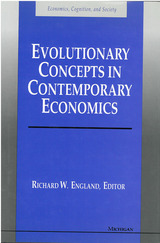
READERS
Browse our collection.
PUBLISHERS
See BiblioVault's publisher services.
STUDENT SERVICES
Files for college accessibility offices.
UChicago Accessibility Resources
home | accessibility | search | about | contact us
BiblioVault ® 2001 - 2024
The University of Chicago Press









